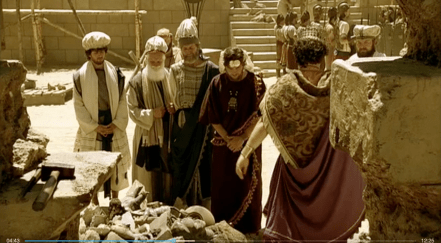Where’s Huldah? Missing (Female) Prophet in Come Follow Me
If you are a member of the Church of Jesus Christ of Latter-day Saints (LDS), you’ve heard this story often at Sunday School:
God’s chosen people fall into apostasy. The prophet warns them that wickedness leads to destruction. They counsel with the prophet and repent. They follow the prophet.
This is a favorite narrative of the authors of the Church’s Come Follow Me curriculum. But what if that same story could also be written this way?
God’s chosen people fall into apostasy. A woman warns them that wickedness leads to destruction. They counsel with a woman and repent. They follow a woman.
This week the Come Follow Me curriculum covers 2 Kings 17–25. The prophet in this Bible story happens to be a woman, Huldah. As I was preparing my lesson plan, I was disappointed to find that the Come Follow Me manual did not even mention Huldah, although it covered Josiah, the king who sought her counsel, in detail.
I gave the curriculum authors the benefit of the doubt. I understand that everything that is written in the scriptures will not fit into a two-page Sunday School lesson outline. The scriptures are just too long. In my version of this lesson plan, I found myself having to skip the story of Hezekiah, even though he was a great guy and a really swell king. I didn’t include him simply for lack of space.
But I was determined to include Huldah. She is after all, the prophet in this story, not to mention the only prominent female character. Because there are so few women heroes in the scriptures, I try to highlight the women who are there. I wish the Come Follow Me curriculum writers cared about representation like I do, but I understand that they may have other priorities. Just because they didn’t include Huldah doesn’t mean there was any malicious intent to the snub.
 Screenshot of the all-male cast of the film, “Josiah and the Book of the Law” by the Church of Jesus Christ of Latter-day Saints
Screenshot of the all-male cast of the film, “Josiah and the Book of the Law” by the Church of Jesus Christ of Latter-day SaintsThe lesson plan in Come Follow Me links to a 12-minute video produced in 2011 called Josiah and the Book of the Law, a pretty long film for a story that only covers two chapters of scripture. It’s a high-quality video. Great production values. Entertaining. But oddly, set in a fictional version of Palestine in which virtually every inhabitant is male. Male characters who only had one or two lines to say in the Biblical text feature prominently in the film. The narrator, a fictional character who could have been of either sex, is a man. Except for one brief scene near the end, every extra in the film is male. But Huldah, who gives a lengthy speech that fills a high proportion of the Biblical text, and—oh yeah—is the prophet in this story, is not in the film. No actress portrays her. The male characters do not even mention her. She has vanished without a trace.
The Come Follow Me manual suggests supplementing the scriptural text with a 1976 talk by Church President Spencer W. Kimball, How Rare a Possession—the Scriptures! It’s a nice talk. Motivational. In his sermon, President Kimball told King Josiah’s story in his own words. His rendition of the story was thorough, yet skipped the part about Huldah.
I had now studied three official sources from the LDS Church interpreting the the story of King Josiah and the prophet Huldah, created in three different media formats in three separate decades, and all managed to tell King Josiah’s story while skipping the climax where Josiah hearkens to the prophet. This does not seem like a simple case of editing for length. Huldah’s exclusion is intentional.
Why is the LDS Church afraid of Huldah? Are they afraid we will notice that a female prophet can lead just as well as a man? That we will wonder why women were prophets in the scriptures, but our modern church doesn’t allow them to be? That young girls in our Sunday school classes will look to Huldah as a role model and hope to be like her someday: a woman with authority in the church?
Maybe they can’t bear the thought that after studying Huldah, our takeaway could be, “Follow a woman.”
If you would like a Sunday School lesson plan in which Huldah’s story is not redacted, you can check out mine: Come Follow Me: 2 Kings 17–25 “He Trusted in the Lord God of Israel” …and so did she.
Come Follow Me: 2 Kings 17–25 “He Trusted in the Lord God of Israel”
After watching the church video about Josiah, I found this excellent post about it, Female Voice and the Prophetess Huldah, written by Ryan Thomas at Patheos in 2014. Recommended reading:
Female Voice and the Prophetess Huldah



